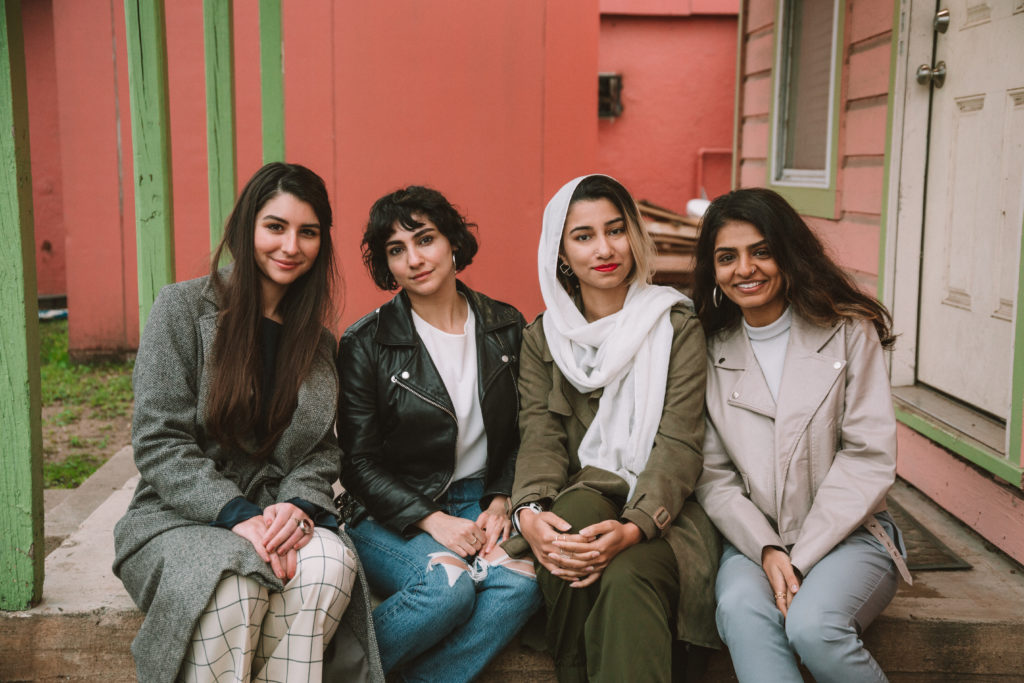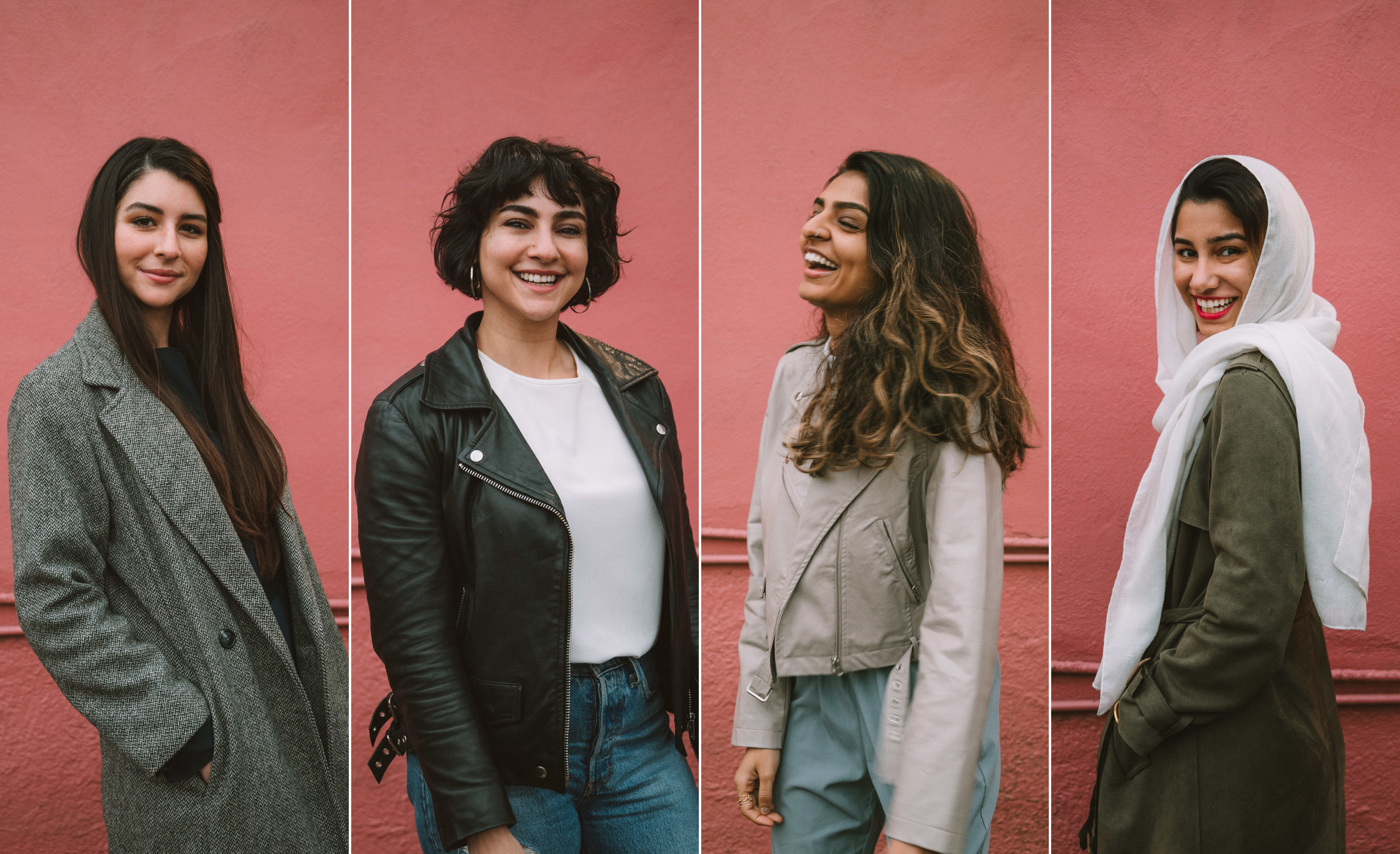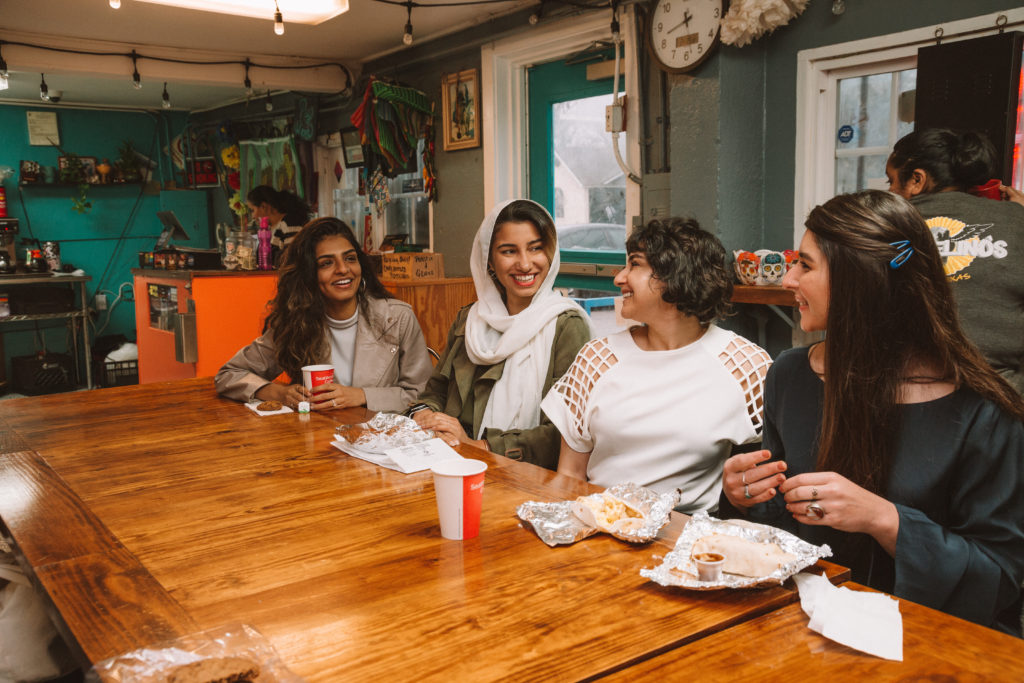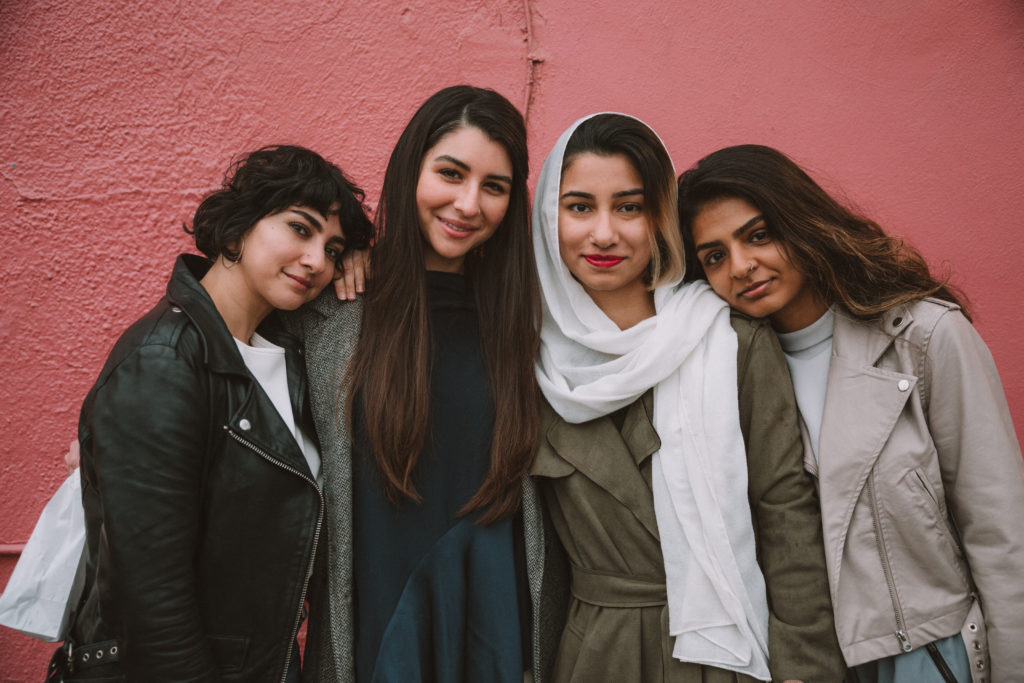The founders of Brown Girls Food Club are creating community and celebrating minority-owned restaurants in Austin.
By Landry Allred, Photos by Riley Blanks
With her parents three hours away in Dallas, Ayesha Erkin would break fast alone every night during Ramadan. What should be a community-orientated month became a reminder of the community she didn’t have in Austin.
She shared how she felt with Hamaila Qureshi and Hala Daher, two of her Muslim friends in Austin, and they came to the same conclusion: They needed more friends who are women of color. They organized a potluck at Daher’s house for iftar and continued meeting every month at restaurants, welcoming Amber Kazalbash into their community after she moved from Los Angeles. After several dinners, they realized, if they had this desire to gather with women, surely others feel the same way. Brown Girls Food Club was born in 2019 after the four launched an Instagram account in October, marketing it as a WOC community that supports minority-owned restaurants in Austin.
“For five years, I didn’t have that space, so it’s been refreshing to be able to have conversations with women of color that I hadn’t had in years,” says Erkin, who moved to Austin in 2015. “To be myself and not hide part of me. A lot of my good friends I love, but they don’t relate on that level or aren’t interested.”
The club meets once a month at various restaurants, and after a brief round of introductions, their time is spent eating and having organic conversations. Although the club is only four months old, its growth has skyrocketed from 10 to 13 people at their first meetup to 37 in their most recent gathering, a testament to its need.
Kazalbash, who has lived in Austin for five months, sees the club’s simplicity as a major draw.
“There’s a lot of interest in Austin already around communities that bring people together,” Kazalbash says. “But this one not only differentiates ourselves, but stands true on our promise. It’s simple: Come, share your story and be in the moment with other women who want to do the same.”
The goal of Brown Girls Food Club stemmed from Erkin’s frustration with society diminishing her cultural identity. She was born in Pakistan and lived in Germany and Saudi Arabia before moving to the United Sates, where she witnessed the oppression and racism her family faced; she felt pulled to assimilate. However, moving to Austin changed everything.
“I would feel guilty or never feel like myself. I couldn’t talk about my religion or where I grew up without somebody making fun of me, so I would just keep quiet,” Erkin remembers. “But the older I got, the more I was like, ‘Why would I try to assimilate? My cultural identity is who I am. I need to start being more vocal about it.’”
Similarly, Qureshi tried to disassociate herself from her cultural identity during childhood. Growing up in a traditional Pakistani and military household, she noticed a lack of people of color in the military. After exploring WOC authors and poets who are changing the culture within their culture, she realized she has the same power.
“The more I’ve seen others share their culture and shift mainstream culture because of it, the more I realized I can be a part of that too,” Qureshi says. “You don’t have to win prizes or write books. You can do little things. Your choices and where you spend your money really make a difference.”
Choosing between a hole-in-the-wall, minority-owned restaurant or an aesthetically pleasing restaurant appealing to the majority-white population then becomes a question of which business do you want to support? While Austin has become increasingly diverse over time, Daher says that minority-owned restaurants are still often overlooked because they lack resources to promote their business.
“Some of the bigger restaurants have PR groups behind them,” Daher says. “Then you go to these family-owned, minority-owned places, and they’re empty, even though the food is delicious and affordable.”
Besides lacking a platform, Erkin says the inconvenient location of these minority-owned restaurants also pushes customers away, as people in Austin like to stay in their bubble.
“The good food is on the outskirts of the city most of the time, but people don’t go because it’s too far,” Erkin says.
This leaves more popular businesses to pick up where they lack. Cultural appropriation is a provoking topic among the club, and all of the girls have noticed that less support for minority businesses resulted in American-fusion restaurants that mix white culture with other minority cultures.
“Minorities are already on the outskirts of our society, so they’re the ones who get pushed aside and suffer when these chefs come in with cultural appropriation,” Qureshi says.
The founders aim to welcome others into this idea of supporting minority-owned restaurants by launching a website with a directory of restaurants to try in Austin. They also hope to expand their vision to other cities and publish a how-to guide for creating a community like theirs.
Erkin says they’re making their mark in this era by building support. Because she’s personally felt attacked by the government’s opposition to Muslims, immigrants and people of color, she claims it pushes her to make a statement with this club even more.
“Yeah, we’re brown, we’re girls and we love to eat our food,” Erkin says. “[Minority-owned restaurants’] food is what makes this country great.”





